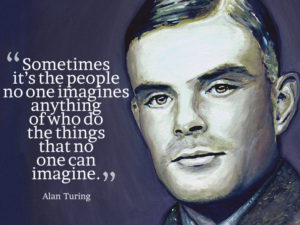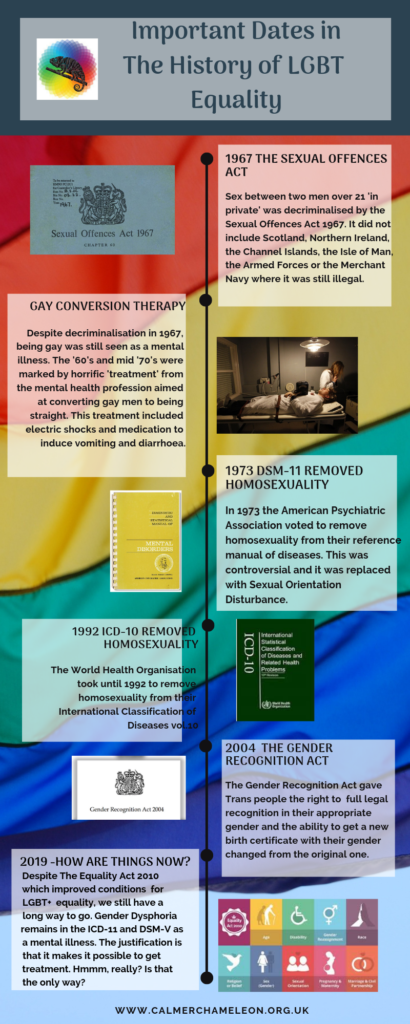LGBT History and Mental Health

The history of how LGBT people have been treated by mental health professionals.
February is LGBT History Month and this year my mind has turned to the history of mental health treatment. It is a dark and shameful chapter in the mental health professionals’ past. There are many gay men alive today who were traumatised by horrific practices aimed at ‘curing’ them of their homosexual urges.
An article published in the BMJ in 2004 recorded the stories of 29 men who were subjected to conversion therapy which came in various forms. Electric shocks were administered as were emetics to cause vomiting. Some people were given female hormones to stop their desires. Alan Turing, who has recently been voted the Greatest Person of the 20th Century had the choice of taking Oestrogen or being imprisoned after being charged with Gross Indecency in 1952. He chose to be chemically castrated and the result of this and losing his job at GCHQ drove him to suicide.

Decriminalisation of homosexuality
Despite the Sexual Offenses Act 1967 decriminalising sex in private between two men over 21, homosexuality was still classed as a mental illness and as morally wrong. Being gay was so villified that many men would seek treatment themselves. Others were coerced by medical professionals, family and friends. Societal attitudes do not change overnight, despite changes in the law. Women were not subjected to criminal charges and imprisonment for same-sex relationships but could be incarcerated in a mental hospital for their sexual orientation.
Trans experience in 20th Century UK
The first known trans woman to undergo reassignment surgery was Roberta Cowell in 1951. Her birth certificate was changed after her surgery. Trans people were not granted full legal recognition of their gender until the Gender Recognition Act was passed in 2004. Social recognition is still a daily battle for many trans people who encounter prejudice and misunderstanding from those who don’t accept their right to be themselves. Gender dysphoria is still classified as a mental illness and there are many hurdles to jump in order to get hormone treatment and surgery in the UK.
Summary
Despite making progress, we still have a long way to go before gender and relationship diversity is considered as a natural part of the human experience. The following infographic summarises some of the key changes in the last 50 years.

